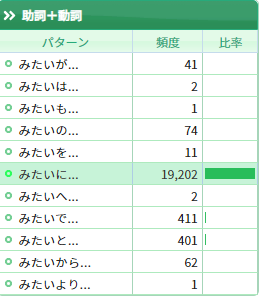Thanks so much Phyro. I’ve noticed that my understanding improves when I watch adult Japanese shows versus Japanese Anime (unless the Anime uses advanced concepts). But I’m still pretty confused. How is DeepL better?
Here’s an example from the show “Midnight Diner: Episode 1”
Gay dude is waiting for his Yakusa Crush to show up. He sighs and says…
今日は来るかなと思ってたけどもたフラれちゃったみたい
my mind automatically asks myself… did they mean…
今日は来るかなと思ってたけどもた振られちゃったみたい
and I translate it to mean…
“I was thinking he would come today, but I guess I was flirting.” (as to say it wasn’t anything real)
and Deep L says…
“I was hoping he’d come today, but it looks like he’s been rejected.” — okay, that’s what I thought.
and the subtitles when I switch it over read…
“I thought he’d be here today, but I guess he dumped me.” —Getting closer…
But Google translate says…
“I was wondering if I would come today” —That’s it? for that entire phrase? LMAO? what???
And if I input the way I would translate it in my head… just hearing it…
今日は来るかなと思ってたけどもた振られちゃったみたい
Google translates even further away from reality…
“I was wondering if I would come today, but it seems like I was shaken” — LOL
It’s just when you want to learn grammar and the translations are adding things like “I guess” and “here” when they aren’t even in the sentence, an amateur such as myself can get really confused.
Maybe I shouldn’t be learning my Japanese from a seedy Tokyo Underground, a Gay Club Owner and his soon to be retired Yakusa Man Lover. LOL. But I find the conversations really interesting, all the abbreviations and nuances and such.
I watched the anime Parasyte and absolutely loved it. But there were no Japanese subtitles, so sitting in on a University Lecture on the anthropomorphic relationship between ego (for the sake of survival) and altruism (for the sake of the common good) was lost on me one episode. So sad.
Then I found the show Eraser 僕だけがいない街 which is offered as the anime with English subtitles, but more importantly as the TV show with both English AND Japanese subtitles. When I watch shows in French, Spanish, or Russian, the spoken languages and subtitles don’t always match up. I can only assume this happens with Japanese as well as my Japanese isn’t good enough to catch those slips. I can read the subtitles really well and often ask myself “How come they didn’t just use the kanji for ___? It’s simpler and more elegant.”
I’m a visual learner. (which explains why Rosetta Stone works so well for me). I like to attach as many senses as possible, even feelings/emotions as well to cement a concept. So reading a book of phrases is a real bullet to the head for me, but watching scenarios fold out in front of me over and over in different ways with different people is how we naturally learn. (again…the concept behind Rosetta Stone) But Rosetta Stone doesn’t use Kanji and it sure as heck doesn’t teach past low intermediate level even after you complete the entire program.
When I learn a Kanji now, from WaniKani, Anime, or a TV Show, it’s difficult for me NOT to want to put it in sentences and play around with its usage to cement it to memory. That requires a good translator. Learning HOW to use a phrase properly and in the right context I think is just as important as learning the phrase itself. I remember the first time I learned 勝手…as in… あとは勝手に注文してくれりゃあー It was a totally foreign concpet and made no sense. I was memorizing the definition with zero context. Like a damn robot “as one pleases…” Level 12! I’m almost at Level 52 now!
Any advice is much appreciated.

